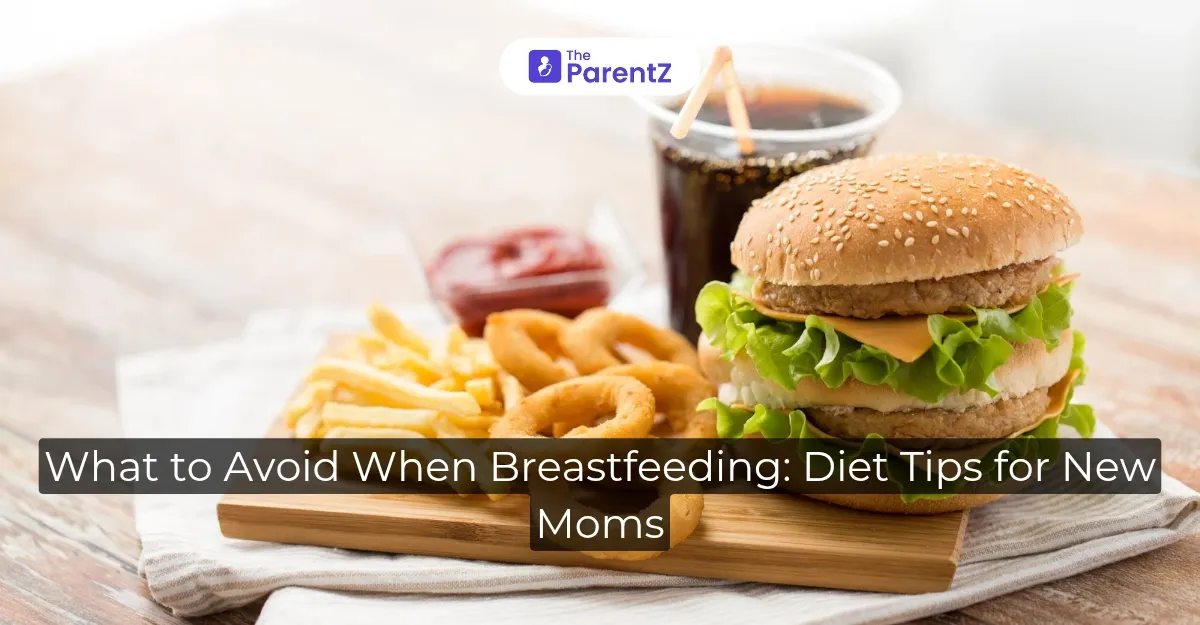Breastfeeding is a great way to nourish your baby, providing essential nutrients and fostering a strong bond between you and your child. However, certain foods and substances can affect your baby's comfort and health. As a new mom, understanding what to avoid in your diet can help ensure a smooth breastfeeding journey for both you and your baby.
1. Caffeine
Caffeine is a stimulant found not only in coffee and tea but also in chocolate, energy drinks, and some soft drinks. While it might be tempting to rely on caffeine for energy, it's important to limit your intake when breastfeeding. Caffeine can pass into breast milk and make your baby restless or irritable.
How Much Caffeine Is Safe?
Try not to exceed 300mg of caffeine per day.
Here's a rough guide to help you gauge your caffeine intake:
- 1 mug of filter coffee: 140mg
- 1 mug of instant coffee: 100mg
- 1 mug of tea: 75mg
- 1 can of energy drink (250ml): 80mg
- 1 can of cola (354ml): 40mg
- 1 plain chocolate bar (50g): up to 50mg
2. Alcohol
Alcohol can enter breast milk and may impact your baby's well-being. Although having an occasional drink is unlikely to cause significant harm, it is often recommended to avoid alcohol completely while breastfeeding to ensure your baby's safety. If you do choose to have a drink, follow these guidelines:
- Limit Your Intake: Stick to 1 or 2 units of alcohol once or twice a week.
- Timing Matters: Allow 2 to 3 hours between drinking and breastfeeding to ensure the alcohol has cleared from your milk. This should only be done after breastfeeding is well established.
- Express Before Drinking: If you plan to have a drink, express milk beforehand so your baby can be bottle-fed during that time. Make sure to express regularly to prevent engorgement.
- Safety First: Never sleep with your baby if you've been drinking, as this increases the risk of sudden infant death syndrome (SIDS).
3. Fish High in Mercury
Fish provides valuable protein and omega-3 fatty acids, but certain varieties contain high mercury levels, posing a risk to your baby's developmental health. Here's how to enjoy fish safely:
- Limit High-Mercury Fish: Swordfish, marlin, and shark should be limited to one portion per week.
- Oily Fish: Enjoy up to two portions of oily fish like tuna, salmon, trout, mackerel, herring, sardines, and pilchards per week.
4. Spicy Foods
Spicy foods like curry, chili peppers, and cinnamon can change the taste and smell of your breast milk, potentially causing your baby to become fussy or refuse to feed. These spices can also upset your baby's stomach, leading to discomfort and indigestion.
5. High-Fiber Foods
High-fiber foods, although nutritious for you, can sometimes lead to gas and discomfort in your baby. Certain vegetables, like cauliflower, Brussels sprouts, and cabbage, are often associated with causing fussiness in infants due to their potential to induce gas. It's advisable to consume these foods in moderation to minimize any adverse effects on your baby.
6. Chocolate
Chocolate contains caffeine and can also be high in sugar. Limiting chocolate intake is advisable to avoid transferring caffeine to your baby and to maintain a balanced diet.
7. Herbs That Affect Milk Supply
Some herbs, such as parsley, sage, and peppermint, can potentially reduce milk production. While these herbs are generally safe in small amounts, consuming them excessively might impact your lactation. Even peppermint-flavored candies or toothpaste could be problematic for some mothers.
8. Cow's Milk Allergy
If your baby shows signs of a cow's milk allergy (such as skin rashes, swelling, or digestive issues), you may need to avoid dairy products temporarily. Consult with your healthcare provider for guidance on managing allergies and reintroducing dairy into your diet.
9. Artificial Sweeteners and Processed Foods
Artificial sweeteners and highly processed foods offer little nutritional value and can be detrimental to your overall health. Go for whole, nutrient-rich foods to support your well-being and milk quality.
10. Smoking and Tobacco
Using tobacco products or smoking poses significant health risks for both you and your baby. It's crucial to avoid these habits entirely to ensure a safe and healthy breastfeeding experience. Tobacco smoke contains numerous harmful chemicals that can pass to your baby through breast milk, potentially leading to respiratory issues and other health problems. Avoid these substances entirely to ensure a healthy breastfeeding experience.
Tips for a Balanced Diet
Maintaining a well-rounded diet is essential not only for your overall health but also for supporting optimal milk production. Here are some key dietary tips:
- Eat a Variety of Foods: Include lots of fruits, vegetables, whole grains, lean proteins, and dairy or dairy alternatives in your diet.
- Stay Hydrated: Drink lots of water and limit sugary drinks.
- Avoid Dieting: Focus on nutrient-rich foods rather than restricting calories, as dieting can impact milk supply.
- Consult a Healthcare Professional: If you have questions or worries about your diet or your baby's health, it's always a good idea to talk to a healthcare provider. They can give you personalized guidance tailored to your specific situation.
Conclusion
Breastfeeding is a journey that requires patience, love, and care. By being mindful of your diet and avoiding certain foods, you can ensure a happy and healthy experience for both you and your baby.





Be the first one to comment on this story.